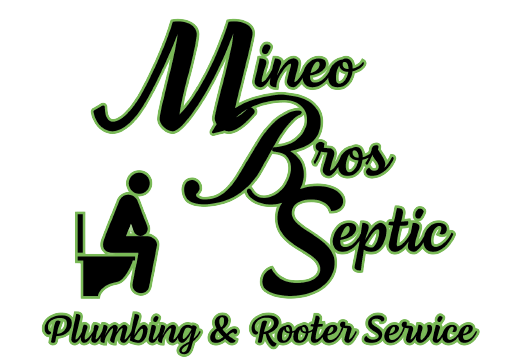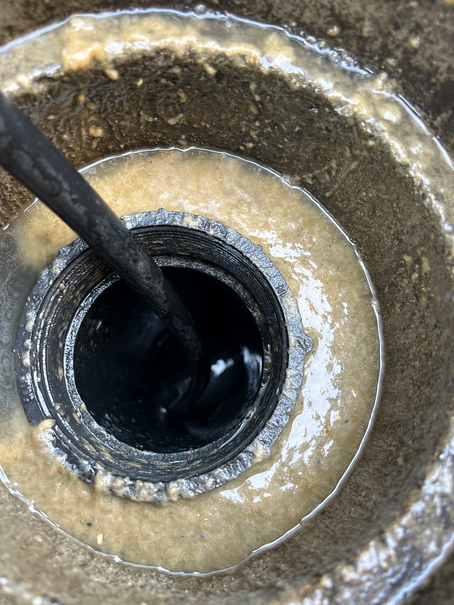Regular septic mainline cleaning keeps your entire septic system functioning properly and prevents costly backups. Most homeowners in San Diego should schedule professional mainline cleaning every 3-5 years, though some properties may need service more frequently based on household size and water usage patterns. The mainline, which connects your home to the septic tank, accumulates grease, soap residue, and organic matter over time. Without proper maintenance, these buildups create blockages that can cause sewage to back up into your home or yard.
Professional septic mainline cleaning removes accumulated debris before problems develop. This preventive maintenance costs significantly less than emergency repairs or replacing damaged pipes. At Mineo Bros Septic, we recommend establishing a regular cleaning schedule based on your specific property needs rather than waiting for warning signs like slow drains or gurgling toilets.
What Is Septic Mainline Cleaning?
The septic mainline serves as the primary pipeline carrying wastewater from your home to the septic tank. This pipe handles everything that goes down your drains, from kitchen grease to bathroom waste. Over years of use, the interior walls of this pipe develop layers of buildup that gradually reduce flow capacity.
Professional mainline septic cleaning involves using specialized equipment to clear these accumulations. Technicians typically employ high-pressure water jetting or mechanical augers to restore the pipe to its original diameter. This process differs from simple drain cleaning because it addresses the entire length of pipe between your home and tank.
Signs You Need Immediate Mainline Cleaning Septic Services
- Multiple drains backing up simultaneously throughout your home
- Sewage odors emerging from drains or in your yard
- Toilets gurgling when you run water elsewhere in the house
- Water pooling around the septic tank area
- Slow drainage affecting multiple fixtures
- Sewage backing up into basement drains or lower level bathrooms
These warning signs indicate your mainline has already developed significant blockages. Addressing them promptly prevents raw sewage from contaminating your property and protects your family’s health.
Recommended Cleaning Frequency
The standard recommendation for septic mainline cleaning falls between three and five years for average households. A family of four using normal amounts of water typically needs service every four years. Smaller households with one or two residents can often extend this interval to five years.
Larger families should consider more frequent cleaning. Homes with six or more occupants benefit from service every two to three years. The increased wastewater volume accelerates buildup formation inside the mainline.
Commercial properties and homes that operate businesses require annual or bi-annual cleaning. The higher usage demands more aggressive maintenance schedules.
Factors That Affect Your Cleaning Schedule
- Age of your septic system – Older pipes develop buildup faster due to surface roughness
- Type of pipe material – Clay and concrete pipes accumulate debris more readily than PVC
- Trees near the mainline – Root intrusion requires more frequent cleaning
- Garbage disposal use – Food waste accelerates grease and solid accumulation
- Water softener discharge – Brine solutions can accelerate pipe deterioration
- Previous blockage history – Properties with past issues need more frequent service
Understanding these factors helps you adjust your maintenance schedule appropriately. Properties with multiple risk factors benefit from annual inspections to monitor buildup levels.
The Professional Cleaning Process
Professional technicians begin by locating and accessing your mainline cleanout. This access point allows equipment entry without excavation. Video inspection often precedes cleaning to assess current conditions and identify problem areas.
High-pressure hydro jetting represents the most thorough cleaning method. Water pressure up to 4,000 PSI scours pipe walls clean while flushing debris toward the septic tank. For stubborn blockages, technicians may use rotating cutting heads to break through solidified grease or root masses.
After cleaning, a follow-up video inspection confirms complete debris removal. This documentation helps track your system’s condition over time and predict future service needs.
Consequences of Delayed Maintenance
Postponing mainline septic cleaning leads to progressively worse problems. Initial symptoms like slow drainage evolve into complete blockages. Raw sewage backing up into your home creates health hazards and causes thousands of dollars in damage.
Neglected mainlines eventually suffer permanent damage. Excessive pressure from blockages can crack pipes or separate joints. Tree roots exploit these weaknesses, creating additional infiltration points. Replacing a damaged mainline costs ten to twenty times more than regular cleaning.
Property values also suffer when septic problems become apparent during home inspections. Buyers often demand significant price reductions or repairs before closing.
Why Professional Service Matters
While store-bought drain cleaners might temporarily improve flow, they cannot address mainline-scale problems. These chemicals also damage pipes and harm beneficial bacteria in your septic tank. Rental equipment lacks the power needed for thorough cleaning.
Professional septic companies possess specialized tools and expertise homeowners cannot replicate. Technicians identify underlying issues like root intrusion or pipe damage during service. They also understand local soil conditions and how they affect septic systems.
Mineo Bros Septic provides comprehensive mainline cleaning services throughout San Diego County. Our experienced technicians help you establish an appropriate maintenance schedule based on your property’s unique needs. Contact us today to schedule your septic mainline cleaning and protect your investment in your home’s wastewater system.

